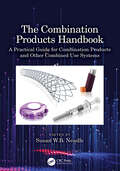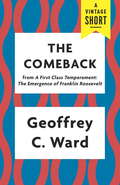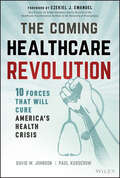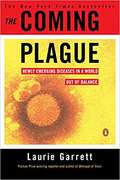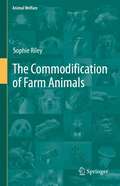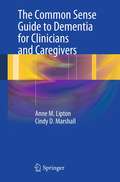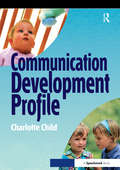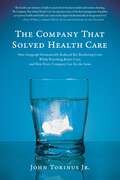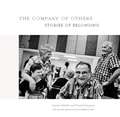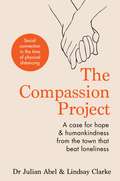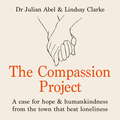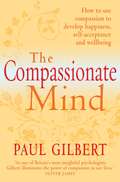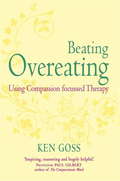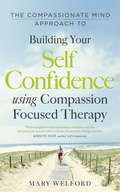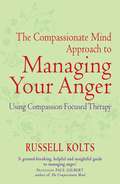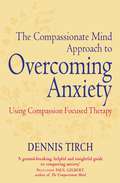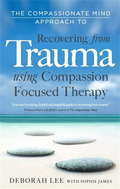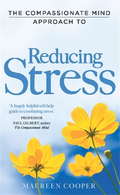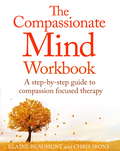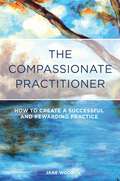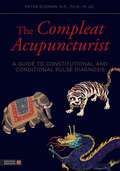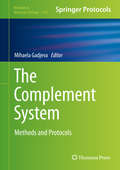- Table View
- List View
The Combination Products Handbook: A Practical Guide for Combination Products and Other Combined Use Systems
by Susan W. B. NeadleCombination products are therapeutic and diagnostic products that combine drugs, devices, and/or biological products. According to the US Food and Drug Administration (FDA), “a combinationproduct is one composed of any combination of a drug and a device; a biological product anda device; a drug and a biological product; or a drug, device and a biological product.” Examplesinclude prefilled syringes, pen injectors, autoinjectors, inhalers, transdermal patches, drug-elutingstents, and kits containing drug administration devices co-packaged with drugs and/or biologicalproducts. This handbook provides the most up-to-date information on the development of combinationproducts, from the technology involved to successful delivery to market. The authors presentimportant and up-to-the-minute pre- and post-market reviews of combination product regulations,guidance, considerations and best practices. This handbook: • Brings clarity of understanding for combination products guidance and regulations • Reviews the current state-of-the-art considerations and best practices spanning the combination product lifecycle, pre-market through post-market • Reviews medical product classification and assignment issues faced by global regulatory authorities and industry The editor is a recognized international Combination Products and Medical Device expert withover 35 years of industry experience and has an outstanding team of contributors. Endorsed byAAMI – Association for the Advancement of Medical Instrumentation.
The Comeback
by Geoffrey C. WardAn eBook short.Franklin Roosevelt contracted polio in the summer of 1921, resulting in permanent paralysis from the waist down. One year later, he went back to work. Noted historian Geoffrey C. Ward, winner of the National Book Critics Circle Award and the Parkman Prize and finalist for the Pulitzer Prize, who is himself a polio survivor, investigates the courage and character of the man who became the greatest president of the twentieth century. "The Comeback," a selection from A First-Class Temperament, the second volume in Ward's monumental biography that began with Before the Trumpet, is the story of one extraordinary man's struggle to regain his feet and reenter public life. Before his illness, FDR's political future had seemed bright. He knew that pity was poison, that if the public understood the extent of his disability his career would be at an end. Roosevelt, therefore, had to teach himself the impossible: how to walk--or seem to walk--again. This is that journey, following the future president from his disastrous attempt to return to his law office to his triumphant march down the aisle at the 1924 Democratic National Convention, where, leaning on his crutches, he delivered the triumphant "Happy Warrior" speech for ill-fated presidential candidate Al Smith and was hailed as a hero. It was FDR's new beginning.
The Coming Healthcare Revolution: 10 Forces that Will Cure America's Health Crisis
by David W. Johnson Paul KusserowExpert review of how the antiquated United States healthcare system is transforming The Coming Healthcare Revolution: The 10 Forces that Will Cure America's Health Crisis identifies and describes five top-down macro forces and five bottom-up market forces that have sufficient strength to transform the U.S. healthcare industry from the outside-in. The powerful macro forces are demographic determinants, funding fatigue, chronic pandemics, technological imperatives, and pro-consumer/market reforms. The equally powerful market forces are whole health, care redesign, care migration, aggregators' advantage, and empowered caregivers. Written by David Johnson and Paul Kusserow, professional healthcare advisors operating at the intersection of healthcare economics, policy, strategy, and capital formation, this book provides expert insight on how the U.S. healthcare system is becoming cheaper, better, more balanced between prevention and treatment, easier to access, and more empowering for both frontline caregivers and consumers. In this book, readers will learn about: Factors leading to rising healthcare costs, including an aging population, perverse economic incentives, armies of middlemen, and expensive breakthrough therapies U.S. healthcare in comparison to other high-income countries—twice as expensive per-capita, and inferior in terms of health status metrics Similarities between the U.S. automobile industry crisis in the 1980s and today's adapt-or-die situation for healthcare providers and suppliers How the healthcare industry is reorganizing to decentralize delivery of whole-person health in ways that will improve health outcomes and overall societal health The Coming Healthcare Revolution is a must-read for professionals and organizations seeking to understand and react to the paradigm-shifting forces revolutionizing the healthcare ecosystem.
The Coming Plague
by Laurie GarrettUnpurified drinking water. Improper use of antibiotics. Local warfare. Massive refugee migration. Changing social and environmental conditions around the world have fostered the spread of new and potentially devastating viruses and diseases—HIV, Lassa, Ebola, and others. Laurie Garrett takes you on a fifty-year journey through the world's battles with microbes and examines the worldwide conditions that have culminated in recurrent outbreaks of newly discovered diseases, epidemics of diseases migrating to new areas, and mutated old diseases that are no longer curable. She argues that it is not too late to take action to prevent the further onslaught of viruses and microbes, and offers possible solutions for a healthier future.
The Commodification of Farm Animals (Animal Welfare #21)
by Sophie RileyThis book examines how the developments in veterinary science, philosophy, economics and law converged during the nineteenth and early twentieth centuries to entrench farm animals along a commodification pathway. It covers two neglected areas of study; the importance of international veterinary conferences to domestic regimes and the influence of early global treaties that dealt with animal health on domestic quarantine measures. The author concludes by arguing that society needs to reconsider its understanding and the place of the welfare paradigm in animal production systems. As it presently stands, this paradigm can be used to justify almost any self-serving reason to abrogate ethical principles.The topic of this book will appeal to a wide readership; not only scholars, students and educators but also people involved in animal production, interested parties and experts in the animal welfare and animal rights sector, as well as policy-makers and regulators, who will find this work informative and thought-provoking.
The Common Sense Guide to Dementia For Clinicians and Caregivers
by Anne M. Lipton Cindy D. MarshallThe Common Sense Guide to Dementia for Clinicians and Caregivers provides an easy-to-read, practical, and thoughtful approach to dementia care. Written by two specialists who have cared for thousands of patients with dementia and their families, this ground-breaking title unifies the perspectives of neurology and psychiatry to meet a variety of caregiver needs. It spotlights many real-world concerns not typically covered in standard textbooks, while simultaneously presenting a more detailed medical perspective than typical caregiver manuals. This handy title offers expert guidance for the clinical management of dementia and compassionate support of patients and families. Designed to enhance the physician-caregiver interaction and liberally illustrated with case examples, The Common Sense Guide espouses general principles of dementia care that apply across the stages and spectrum of this illness, including non-Alzheimer's types of dementia, in addition to Alzheimer's disease. Clinicians, family members, and other caregivers will find this volume useful from the moment that symptoms of dementia emerge. The authors place an emphasis on caring for the caregiver as well as the patient. Essential topics include how to find the right clinician, make the most of a doctor's visit, and avert a crisis - or manage one that can't be avoided. Sometimes difficult considerations, such as driving, financial management, legal matters, long-term placement, and end-of-life care, are faced head-on. Tried, true, and time-saving tips are explained in terms of what works - and what doesn't - with regard to clinical evaluation, medications, behavioral measures, and alternate therapies. Medical, nursing, and allied health care professionals will undoubtedly turn to this unique overview as a vital resource and mainstay of clinical dementia care, as well as a valuable recommendation for family caregivers.
The Communication Disorders Workbook
by Louise CummingsDesigned to help those studying speech-language pathology, this highly useful workbook is both an introduction to the basic concepts and a teaching tool to develop and test students' knowledge. Frequently encountered communication disorders are included, as are conditions less commonly found in speech-language pathology curricula but which feature increasingly in clinical caseloads. The book features: - 330 short-answer questions help students to develop knowledge of the causes and features of communication disorders - 60 data analysis exercises give students practice in analysing clinical linguistic data - Full answers to the exercises are provided, saving the lecturer time in devising responses; students can use the responses to test their own knowledge and understanding - A detailed glossary of terms makes the text self-contained, avoiding the need to consult other sources for explanations - Suggestions for further reading are provided for each chapter.
The Communication Profile
by Charlotte ChildThis practical CD-ROM resource provides a simple, shared framework to help speech & language therapists work more effectively with the families, carers and teachers of children with severe and profound learning disabilities. The profile immediately improves the way therapists support and advise teachers and families, and consequently results in a more united and holistic approach towards the child's development. It provides a clear descriptive breakdown of five key areas of language and communication development from birth to the development and use of grammatical sentences. Areas are: attention; comprehension (what the child understands); expression (how the child communicates); sound system; and, use of communication (what and why the child communicates). It creates an individual and visual representation of the child's development across each of these key areas, facilitating joint discussion and identification of the skills most needing support. It enables information from therapists' assessments and parents' or teachers' informal observations and experiences to be combined creating a more equal and share view of the child's skills in their everyday life. It links to the P-Levels, expanding on the descriptions of the skills expected at each stage and focusing on the core developmental changes expected at each level, therefore providing an invaluable joint resource for teachers and speech & language therapists to use together. It establishes the communicative phase that the child is working within, therefore enabling the most appropriate style of speech and language therapy intervention to be identified, based on the child's developmental learning style and needs. It results in a reduction in dissatisfaction and misunderstandings when identifying targets and setting activities with both teachers and families, and in agreeing speech & language therapy provision. This profile is an essential tool for all therapists working with children with learning disabilities. It improves multi-disciplinary assessments; enables parents to have an informed and genuine role; makes target setting in educational settings directly relevant to the curriculum; expands on the P-Levels and better describes them; and, enables the therapist to explain their thought processes, which all lead to better goal-setting and a cohesive communication development strategy for the child.
The Company That Solved Health Care: How Serigraph Dramatically Reduced Skyrocketing Costs While Providing Better Care, and How Every Company Can Do the Same
by John TorinusEven with new health-care policies, one thing is clear: health-care costs will continue to rise dramatically. While individuals may get better coverage, businesses will have the same problem they've had for the last four decades. Health care, one of corporate America's largest expenses, is growing at double-digit rates, and nothing done in Washington will change that. But one medium-size company set out to tame the beast of rising health-care costs, employing best practices and cutting-edge ideas. The results have caused others to sit up and take notice. Serigraph, Inc., a Wisconsin-based manufacturer of decorative parts, and its chairman, John Torinus, did what Washington can't or won't do: reduce cost increases to less than 2 percent while improving the quality of health care for its employees. The implications for corporate America are staggering--the opportunity for genuine reform in an expense category that has been spiraling out of control. Serigraph began its initiative to control health-care costs in 2003, when its annual health-care bill was $5 million and another $750,000 was needed for the projected 15 percent annual increase. The company employed three strategies for reform, each of which can cut the health-care bill by 20 percent to 40 percent--consumer responsibility, the primacy of primary over specialty care and centers of value. Applied in concert with other management methods, these three approaches almost eliminated growth in health-care costs while improving the quality of employee care. The results are documented. They are beyond refute. The Company That Solved Health Care describes the fascinating details of Serigraph's program, and shows how any company can achieve similar results. This book is essential reading for any manager responsible for his or her company's health-care expenses, any academic or thinker involved in the health-care debate and anyone who wants to better understand why health-care costs have been rising and what can be done to achieve price stability while improving patient care.
The Company of Others
by John Ralston Saul Sandra Shields David CampionIn the next decade, six million North American families will be caring for someone with a disability. But other disabled people are not so lucky, left to live in isolation and without support in an era of federal and state cutbacks. This extraordinary book is about the transforming power of family and community on "vulnerable" individuals--the mentally challenged, the mentally ill, the elderly--and how these efforts enrich us as a society. The book tells the stories, interwoven with photographs, of five such people, who are surrounded by social "circles--friends and family whose respect, encouragement, and unconditional love give them a sense of purpose and belonging. Featuring beautiful duotone photographs, the stories told here are profoundly inspiring, giving hope to anyone who, because of age, health, or disability, has been excluded from having a full and meaningful life.Co-produced with PLAN (Planned Lifetime Advocacy Network).
The Compassion Project: A case for hope and humankindness from the town that beat loneliness
by Lindsay Clarke Julian Abel'A wonderful book' - Dr. Rangan Chatterjee'Highly convincing' - Daily Express'Pioneering' - The Telegraph'The strength of the book lies in its description of how community life can have a transformative effect on individuals' - British Journal of General PracticeAcross the country, general hospital admissions are on the rise. But in a small town in rural England, thanks to the simple introduction of kindness and compassion, that trend has been reversed. And what this town achieved, we can all adopt in our own lives to powerful effect. Through daily mindful acts of care we are capable of changing things for the better, both inside ourselves and for the world around us. Frome in Somerset isn't special. It could be any town; it could be your town. And yet the people who live there have a story to tell about the simple, ground-shaking power of compassion. If it came in tablet form, it would be hailed as a wonder of modern medicine. By contrast, it's entirely free but offers heartening evidence that when human beings make time for each other, the beneficial effects go far beyond the reach of naïve optimism.'A culture in which compassion is a prevailing value allows individuals to flourish and bring their talents and gifts to the communities in which they live. Unanticipated possibilities emerge, presenting fresh ways of addressing what previously appeared to be insoluble problems. Hearts are lifted. The case for hope is more strongly made. And as the people who work in this way begin to change the world immediately around them, so too, the wider world beyond begins to change.' Dr Julian Abel & Lindsay Clarke
The Compassion Project: A case for hope and humankindness from the town that beat loneliness
by Lindsay Clarke Julian Abel'A wonderful book' - Dr. Rangan Chatterjee'Highly convincing' - Daily Express'Pioneering' -The Telegraph'The strength of the book lies in its description of how community life can have a transformative effect on individuals' - British Journal of General PracticeAcross the country, general hospital admissions are on the rise. But in a small town in rural England, thanks to the simple introduction of kindness and compassion, that trend has been reversed. And what this town achieved, we can all adopt in our own lives to powerful effect. Through daily mindful acts of care we are capable of changing things for the better, both inside ourselves and for the world around us. Frome in Somerset isn't special. It could be any town; it could be your town. And yet the people who live there have a story to tell about the simple, ground-shaking power of compassion. If it came in tablet form, it would be hailed as a wonder of modern medicine. By contrast, it's entirely free but offers heartening evidence that when human beings make time for each other, the beneficial effects go far beyond the reach of naïve optimism.'A culture in which compassion is a prevailing value allows individuals to flourish and bring their talents and gifts to the communities in which they live. Unanticipated possibilities emerge, presenting fresh ways of addressing what previously appeared to be insoluble problems. Hearts are lifted. The case for hope is more strongly made. And as the people who work in this way begin to change the world immediately around them, so too, the wider world beyond begins to change.' Dr Julian Abel & Lindsay Clarke
The Compassion Project: A case for hope and humankindness from the town that beat loneliness
by Lindsay Clarke Julian Abel'It could... be one of the most dramatic medical breakthroughs of recent decades. It could transform treatment regimes, save lives, and save health services a fortune. Is it a drug? A device? A surgical procedure? No, it's a newfangled intervention called community.' George Monbiot, The GuardianFrome in Somerset has seen a dramatic fall in emergency hospital admissions since it began a collective project to combat isolation. While emergency admissions to hospitals across Somerset have increased by 29%, incurring a 21% increase in costs, Frome has seen admissions fall by 17%, with a 21% reduction in costs.Society has developed in such a way to facilitate a drastic malnourishment of community, connection and compassion. This book sets out the case for the effective restoration of the active power of compassion as a widely available, fundamental force for good in all aspects of human life. In the process, it draws attention to research which demonstrates that an innate capacity and need for compassionate behaviour is closely woven into the fabric of our bodies.But this is also a book with stories to tell - the stories of how, by harnessing the power of compassion in the lives of real men and women, the small English town of Frome has opened up a new approach to the practice of medicine which has improved individual health and welfare while at the same time enhancing the vitality of the whole community. The effects of this approach have proved so beneficial that it has attracted international attention and is now transforming perspectives on issues of healthcare and social welfare across the world.(p) 2020 Octopus Publishing Group
The Compassionate Mind
by Prof Paul Gilbert'Wise and perceptive. [It] teaches self-compassion and the consolations of kindness. I recommend it.' SALLY BRAMPTON, author of Shoot the Damn DogDEVELOP YOUR FEELINGS OF COMPASSION AND INCREASE YOUR SENSE OF WELL-BEING In societies that encourage us to compete with each other, compassion is often seen as a weakness. Striving to get ahead, self-criticism, fear, and hostility towards others seem to come more naturally to us.The Compassionate Mind explains the evolutionary and social reasons why our brains react so readily to threats - and reveals how our brains are also hardwired to respond to kindness and compassion.Research has found that developing kindness and compassion for ourselves and others builds our confidence, helps us create meaningful, caring relationships and promotes physical and mental health. Far from fostering emotional weakness, practical exercises focusing on developing compassion have been found to subdue our anger and increase our courage and resilience to depression and anxiety. 'As one of Britain's most insightful psychologists, Gilbert illuminates the power of compassion in our lives.' OLIVER JAMES, AUTHOR OF AFFLUENZA
The Compassionate Mind Approach to Beating Overeating: Series editor, Paul Gilbert
by Kenneth GossThis self-help book explores the problems created by having ready access to high fat foods designed to taste good. Because we evolved in conditions of relative scarcity we have few natural food inhibitors and so most diet books try to encourage people to inhibit their eating by highly rule governed behaviours which have to be constantly worked at. However, this can lead to various forms of self-criticism which can undermine efforts at self-control. As a result our relationship with eating can be complex, multifaceted and problematic.Beating Overeating Using Compassion Focused Therapy uses Compassion Focused Therapy - a groundbreaking new therapeutic approach - to understand and work with our urges and passions for food. We can learn to enjoy and accept food and pay attention to our biological and emotional needs. This book is for people who have tried diets and found that they don't work and will enable the reader to have a healthier and happier relationship with food and their body.Topics covered: The relationship between our brains and food, the evolutionary background to finding, conserving and eating food How too much or too little food affects the brain, why diets don't work, factors affecting our eating behaviour (tastes, stress, comfort, etc) Body shape and culture Developing an inner compassion for one's relationship with food - recognising what we need and what is helpful
The Compassionate Mind Approach to Building Self-Confidence: Series editor, Paul Gilbert (Compassion Focused Therapy)
by Dr Mary WelfordMany of us have a tendency to measure our self-worth by comparing ourselves to others. But when we fail to reach our own, families, communities or societies 'ideals' this often results in feelings of inadequacy, anxiety and low mood. We may become self-critical, experience shame and a sense of being different from others. Although an improvement in 'self-esteem' is what we may feel we want this is not necessarily what we need. This is because self-esteem is often associated with times when things are going well but can fail us when things do not go to plan. In contrast self-confidence, built from self-compassion, can help us when things are going well and make us more resilient when things are difficult.This book uses the ideas and practices of Compassion Focused Therapy to help build self-confidence. Attention is also paid to difficulties that often come hand in hand with lack of self-confidence such as anxiety, depression, substance use and anger.
The Compassionate Mind Approach to Managing Your Anger: Using Compassion-focused Therapy (Compassion Focused Therapy)
by Russell KoltsWe can all get angry from time to time but when it gets out of hand it can have a serious impact on many aspects of our lives. As well as having an impact on our physical and mental health and our ability to engage in healthy relationships, it can also potentially have an enormous impact on society. The media is rife with stories of domestic violence, tragic stories of shaken babies, road-rage incidents and bullying.Mounting evidence suggests that all this anger can be harmful to us in a number of different ways. As well as the enormously damaging impact chronic anger can have on our relationships with other people, it is being linked to health problems such as cardiovascular disease and irritable bowel syndrome (IBS) and mental illnesses such as depression and post-traumatic stress disorder (PTSD). This invaluable self-help guide will enable the reader to recognise their personal anger problems, gain an understanding of what lies behind their anger, and use techniques based on Compassion Focused Therapy (CFT) to deal with their anger more effectively. CFT was initially developed by Professor Paul Gilbert, author of The Compassionate Mind, to treat those with high levels of self-criticism. It uses the proven, research-based techniques of CBT and other therapies with a special focus on the importance of developing inner compassion, in order to alleviate feelings of shame, develop a more balanced outlook and promote resilience. It incorporates elements of mindfulness and Tibetan Buddhism with recent research on human development and studies of the brain. It is increasingly used to treat a wide range of emotional and psychological problems including depression, overeating, shyness, trauma, anxiety and anger.
The Compassionate Mind Approach to Overcoming Anxiety: Using Compassion-focused Therapy (Compassion Focused Therapy)
by Dennis TirchWe know what it's like to worry from time to time, but for some of us, our worrying can take over and have a serious impact on our lives. When our anxiety gets out of hand and starts to dominate our lives, affecting how we function and our general sense of wellbeing, it's time to do something about it. This accessible self-help guide provides the reader with a clear understanding of how problem anxiety develops, the kinds of problems it's causing them and sets out ground-breaking Compassion Focused Therapy (CFT) techniques to overcome their anxiety . CFT was initially developed by Professor Paul Gilbert OBE, author of the bestselling The Compassionate Mind which set out his ground-breaking approach, to treat those with high levels of shame and self-criticism. It uses the proven, research-based techniques of CBT and other therapies with a special focus on the importance of developing inner compassion, in order to alleviate feelings of shame, develop a more balanced outlook and promote resilience. It incorporates elements of mindfulness and Tibetan Buddhism with recent research on human development and studies of the brain. It is increasingly used to treat a wide range of emotional and psychological problems including depression, overeating, shyness, trauma, anxiety and anger.
The Compassionate Mind Approach to Recovering from Trauma: Using Compassion Focused Therapy (Compassion Focused Therapy)
by Deborah Lee Sophie JamesTerrible events are very hard to deal with and those who go through a trauma often feel permanently changed by it. Grief, numbness, anger, anxiety and shame are all very common emotional reactions to traumatic incidents such as an accident or death of a loved one, and ongoing traumatic events such as domestic abuse. How we deal with the aftermath of trauma and our own emotional response can determine how quickly we are able to 'move on' and get back to 'normality' once more. An integral part of the recovery process is not only recognising and accepting how our lives may have been changed but also learning to deal with feelings of shame - an extremely common reaction to trauma.'Recovering from Trauma' uses the groundbreaking Compassion Focused Therapy to help the reader to not only develop a fuller understanding of how we react to trauma, but also to deal with any feelings of shame and start to overcome any trauma-related difficulties.
The Compassionate Mind Approach to Reducing Stress
by Maureen CooperStress is an unavoidable part of life that we will all encounter at various times in our lives, be it due to a one-off event such as losing a job or the break-up of a relationship, or from facing long-term difficulties such as working in a stressful environment or caring for someone who is ill. How well we deal with stress will influence the extent to which it affects our lives. In this ground-breaking book, Maureen Cooper explains why we are designed to respond to stress in a certain way and why this can even be helpful at times. She goes on to explain, using practical examples and techniques, what we can do to change our stress response if it becomes overstimulated, thereby improving our sense of control and wellbeing. This self-help book is based on the Compassionate Mind Approach, which has been developed by Professor Paul Gilbert, a clinical psychologist who is internationally renowned for his research and clinical work on depression. The Compassionate Mind Approach combines proven, research-based Western therapy techniques such as CBT with Mindfulness, Tibetan Buddhist practices and recent research on human development and studies of the brain.
The Compassionate Mind Workbook: A step-by-step guide to developing your compassionate self
by Chris Irons Dr Elaine BeaumontThere is good and increasing evidence that cultivating compassion for one's self and others can have a profound impact on our physiological, psychological and social processes. In contrast, concerns with inferiority, shame and self-criticism can have very negative impacts on these processes and are associated with poorer physical and mental health. The Compassionate Mind Workbook is for anyone who is interested in how compassion - in the form of ideas and practices derived from Compassion Focused Therapy (CFT) and other approaches - may help us to engage with, understand and ultimately, try to alleviate suffering. CFT utilises both Buddhist practices and Western psychological science. It draws on neuroscience, insights into emotion regulation and identity formation, interpersonal psychology and a range of psychotherapeutic models. CFT-based interventions can help people with a range of mental health problems develop compassion for themselves, be open to the compassion of others and develop compassion for others.This workbook is a step-by-step guide to CFT, in which the chapters build your understanding of yourself, the skills that give rise to a compassionate mind, and ways to work with whatever difficulties you're struggling with in life. The exercises, prompts and case stories in this book provide an understandable and practical way to develop compassion.
The Compassionate Mind Workbook: A step-by-step guide to developing your compassionate self
by Chris Irons Elaine BeaumontThere is good and increasing evidence that cultivating compassion for one's self and others can have a profound impact on our physiological, psychological and social processes. In contrast, concerns with inferiority, shame and self-criticism can have very negative impacts on these processes and are associated with poorer physical and mental health. The Compassionate Mind Workbook is for anyone who is interested in how compassion - in the form of ideas and practices derived from Compassion Focused Therapy (CFT) and other approaches - may help us to engage with, understand and ultimately, try to alleviate suffering. CFT utilises both Buddhist practices and Western psychological science. It draws on neuroscience, insights into emotion regulation and identity formation, interpersonal psychology and a range of psychotherapeutic models. CFT-based interventions can help people with a range of mental health problems develop compassion for themselves, be open to the compassion of others and develop compassion for others.This workbook is a step-by-step guide to CFT, in which the chapters build your understanding of yourself, the skills that give rise to a compassionate mind, and ways to work with whatever difficulties you're struggling with in life. The exercises, prompts and case stories in this book provide an understandable and practical way to develop compassion.
The Compassionate Practitioner: How to create a successful and rewarding practice
by Jane WoodFocusing on the importance of relationship-building, this handbook explains how to turn new clients into regulars and make your practice flourish. If you can create trust, loyalty and a sense of safety in new clients, they are more likely to commit to the further appointments needed to experience the healing you have to offer. This book considers how best to enhance the client's experience at every stage of the consultation through compassion and mindfulness. It is full of practical advice about everything from creating the right ambience in the therapy room to maintaining a positive attitude through self-reflection. This will be a valued support for students and professionals working in a wide range of complementary and alternative therapies, as well as art, music and drama therapists.
The Compleat Acupuncturist: A Guide to Constitutional and Conditional Pulse Diagnosis
by Peter Eckman William R. MorrisIn this highly original and authoritative book, Peter Eckman takes pulse diagnosis as a common thread that links and integrates the various disciplines of Oriental medicine, and shows that they are in fact related by a common origin several thousand years ago. The text describes the clinical details used in a variety of acupuncture styles, synthesizing them into a coherent whole, and illustrating the usefulness of this model with an extensive presentation of case histories. A fundamental premise of the book is that treatment should be based not only on the current condition of the patient, but even more importantly on their inherent constitution. The description of constitutional pulse diagnosis therefore forms Part 1 of the text, the description of conditional pulse diagnosis forms Part 2 and Part 3 provides more than 30 case histories with pulse analysis, diagnosis and treatment (with outcomes), so that the book will be of utmost practical benefit. Much of the book consists of new theoretical schemata to organize traditional Oriental medical concepts into a coherent whole - groundbreaking work that will provide fresh insights and deeper understanding to all practitioners of Chinese medicine, especially acupuncturists. It presents a wealth of material that is not commonly available in Indian (Ayurveda), Korean or Chinese medicine, as well as other traditions of Oriental medicine, including the only thorough presentation of Korean Constitutional Acupuncture in English, based on the author's personal study under its originator.
The Complement System
by Mihaela GadjevaComplement Systems: Methods and Protocolsis composed of32 individual chapters that describe a variety of protocols to purify and analyze the activity of the individual complement components or pathways. It includes assays that describe detection of complement SNPs, clinical methods to evaluate complement system activation and data interpretation. Written in the highly successfulMethods in Molecular Biology series format, chapters include introductions to their respective topics, lists of the necessary materials and reagents, step-by-step, readily reproducible laboratory protocols, and tips on troubleshooting and avoiding known pitfalls. Authoritative and practical, Complement Systems: Methods and Protocolsprovides acollection of well-established classical assays and recently developed new assays to analyze the complement system activation will be useful to a wide audience of scientists. "
